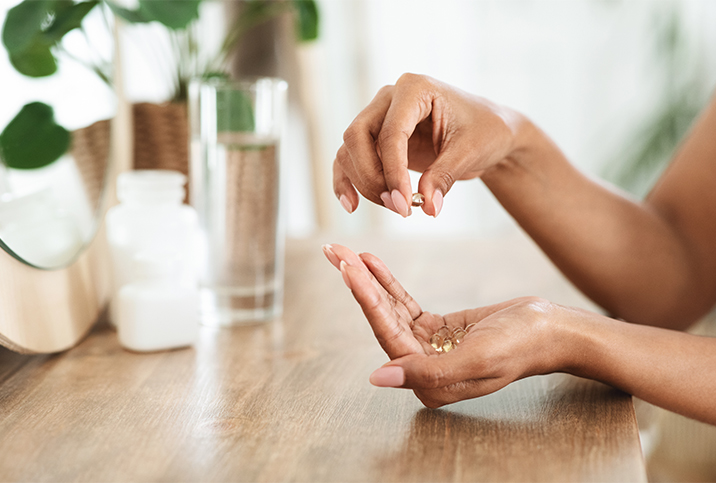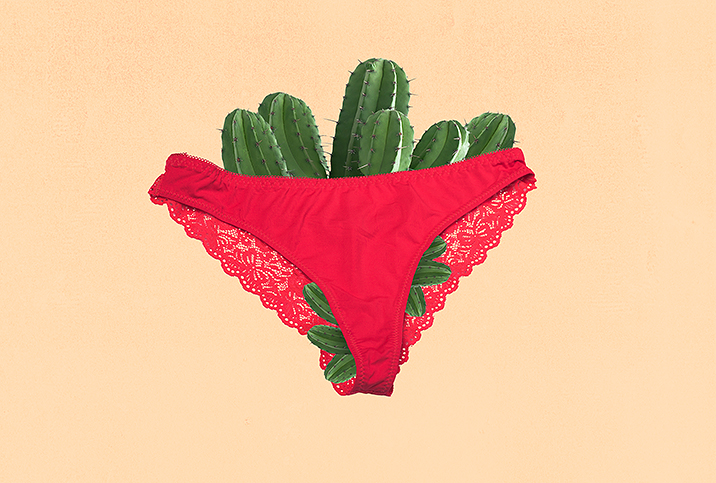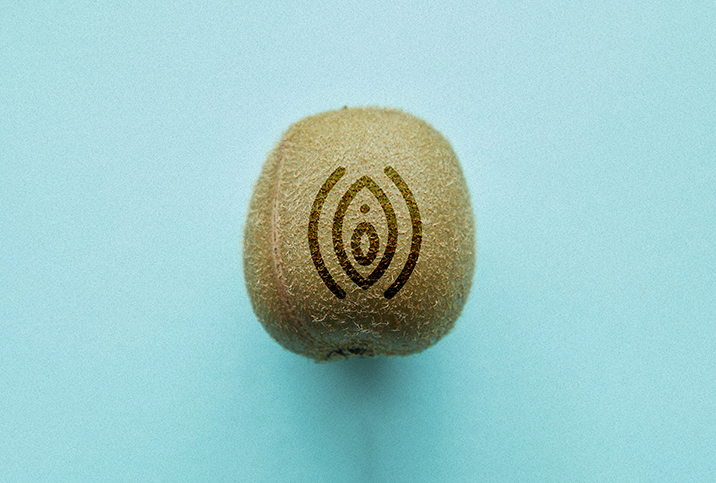How Can Vitamins Help My Vaginal Dryness?

Vaginal dryness, also known as atrophic vaginitis, is a condition that causes pain and discomfort for many women. Luckily, there are several treatments for vaginal dryness, and emerging research indicates that supplements, such as vitamin E, vitamin D and omega-3 fatty acids, may be useful in treating this condition.
Although vaginal dryness is mostly associated with menopause, it can occur at any age. Around 17 percent of women ages 18 to 50 experience vaginal dryness before menopause.
Symptoms include:
- Stinging, itchiness or inflammation
- Pain during intercourse or urination
- Bleeding after intercourse
- Frequent urinary tract infections (UTIs)
Keep reading to learn more about improving vaginal dryness with vitamins.
Causes of vaginal dryness
There is no single cause for vaginal dryness, but some common causes include:
- Menopause. Estrogen keeps your vagina elastic and lubricated, so when estrogen levels dip in the lead-up to menopause, vaginal tissue can become thinner, drier and prone to tearing.
- Lack of arousal. Your vagina and Bartholin glands (pea-sized glands at the base of your vaginal opening) produce natural lubrication in response to sexual stimuli, but this doesn't always happen. Sometimes your vagina doesn't produce enough natural lubrication, no matter how turned on you are, which can make penetration difficult or uncomfortable. That's what lube is for!
- Vaginal washes or douches. Research indicates that using douches or fragranced intimate washes can increase your risk of vaginal dryness. Remember: Your vagina is self-cleaning and all you need to wash your vulva is warm water.
- Autoimmune disorders. Some autoimmune conditions, including diabetes and Sjögren's syndrome, can cause vaginal dryness.
- Medications. Birth control, antihistamines and antidepressants may cause vaginal dryness as a side effect.
- Cancer treatment. Chemotherapy and surgical menopause—the surgical removal of the ovaries—negatively affect estrogen levels, which can lead to vaginal dryness.
Using vitamins to treat vaginal dryness
There are several treatment options for vaginal dryness, from hormone replacement therapy (HRT)—also called menopausal hormone therapy (MHT)—to over-the-counter vaginal moisturizers and lubricants.
Some supplements and vitamins also may relieve vaginal dryness.
Vitamin E and vaginal dryness
"Vitamin E may play a role in estrogen stability," explained Kimberly Larson-Ohlsen, M.D., assistant professor in gynecology, integrative medicine and acupuncture at the University of Colorado in Denver.
Vitamin E is commonly found in skincare products because of its antioxidant and nourishing properties, and some studies suggest those same properties might help alleviate vaginal dryness.
"There is a small, randomized study looking at 100 IU [international units] of vitamin E compared to vaginal estrogen for 12 weeks, with significant improvement in both groups," Larson-Ohlsen said.
The study used vitamin E suppositories, administered vaginally, and concluded that they helped participants with vaginal dryness and may be especially beneficial for women who can't take hormone replacement therapy.
Vitamin D and vaginal dryness
Vitamin D has also shown promising benefits in studies.
"A systematic review looked at six studies in which two had positive results for using supplemental vitamin D for vaginal dryness," Larson-Ohlsen said. "According to this study, 'Vitamin D is involved in the regulation of growth and differentiation of many cells, especially tissues lining the stratified squamous epithelium which are present in the vagina and are regulated by Vitamin D.'" Both oral and vaginal vitamin D supplements were useful in treating atrophic vaginitis.
Omega-3 fatty acids and vaginal dryness
Omega-3 fatty acids may also help relieve vaginal dryness.
"Omega-3 and -6 [are] good fats [and] are required for hormone production," Larson-Ohlsen explained. "There is a study out of Finland that concluded that sea buckthorn oil—[which] contains beta-carotene, trace minerals, omega-3, -6, -9 and -7, an important component in mucous membranes—was an effective solution to vaginal dryness."
Another study suggested that participants had increased levels of estradiol, a form of estrogen, after taking a combination of vitamin D3 and omega-3 fatty acid supplements for eight weeks.
It's important to remember an individualized approach to vaginal dryness is necessary because the best treatment option for you depends on your medical history, lifestyle and the cause of your vaginal dryness, Larson-Ohlsen advised.
The evidence for improving vaginal dryness with vitamins is promising, but more research is needed. As with all supplements, it's important to speak with your OB-GYN or healthcare provider first before trying vitamins for vaginal dryness.
Editor's note: These statements have not been evaluated by the Food and Drug Administration. Our medical experts advise that you consult with your primary healthcare provider before you begin using a supplement. This information is not intended to diagnose, treat, cure or prevent disease.


















